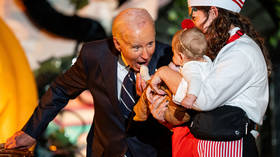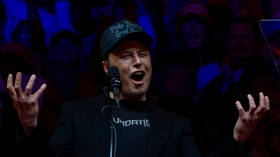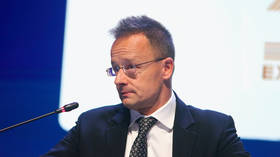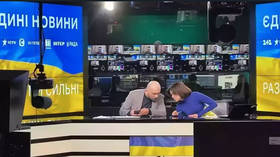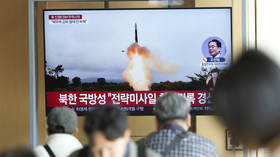Banning Russian media created news gap on Ukraine conflict – South African official
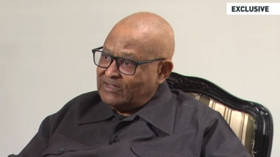
Restrictions imposed on Russian media outlets in several parts of the world in response to the Ukraine conflict have made the availability of information on the crisis “one-sided,” a former South African ambassador to the US has told RT.
In an exclusive interview on Monday, Welile Nhlapo argued that a lack of different viewpoints on the conflict has made it “very easy for people to get confused” and for governments to be misled.
“It’s just one-sided bombardment” from Western-aligned broadcasters like CNN, BBC, and Al Jazeera, the South African conflict management practitioner told RT in Johannesburg, where the 15th BRICS summit is currently underway.
Nhlapo is currently a senior political adviser to the African peace mission, which saw a contingent of leaders from the continent led by South African President Cyril Ramaphosa meet with their Russian and Ukrainian counterparts in June to present a ten-point ceasefire proposal.
He explained that the mission’s goal was to get both parties to accept the African mission and allow them to listen to and understand the dynamics that informed the conflict, given the difficulties in accessing the Russian perspective on the crisis.
Nhlapo believes that Pretoria’s membership of BRICS gives the impression that it is aligned with Moscow. However, he said South Africa makes “informed decisions in terms of what affects us, what is in our interest, and how we should respond to all these developments.”
“And once we decided to take our decision, we as a country became singled out,” he added, referring to Pretoria’s repeated insistence that it is unaligned on the Russia-Ukraine conflict.
“They forget that we’ve gone through the pains and all the difficulties that the Cold War imposed on all of us... We understand what’s been happening, so we’re able to make informed decisions.”
Watch the full interview, in which the diplomat also discusses “unusual steps” being taken by the West and his thoughts on how NATO’s expansion has contributed to the conflict between Russia and Ukraine.


